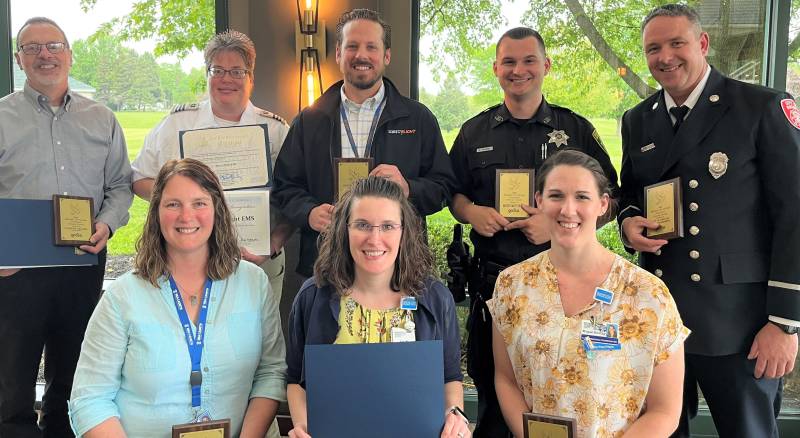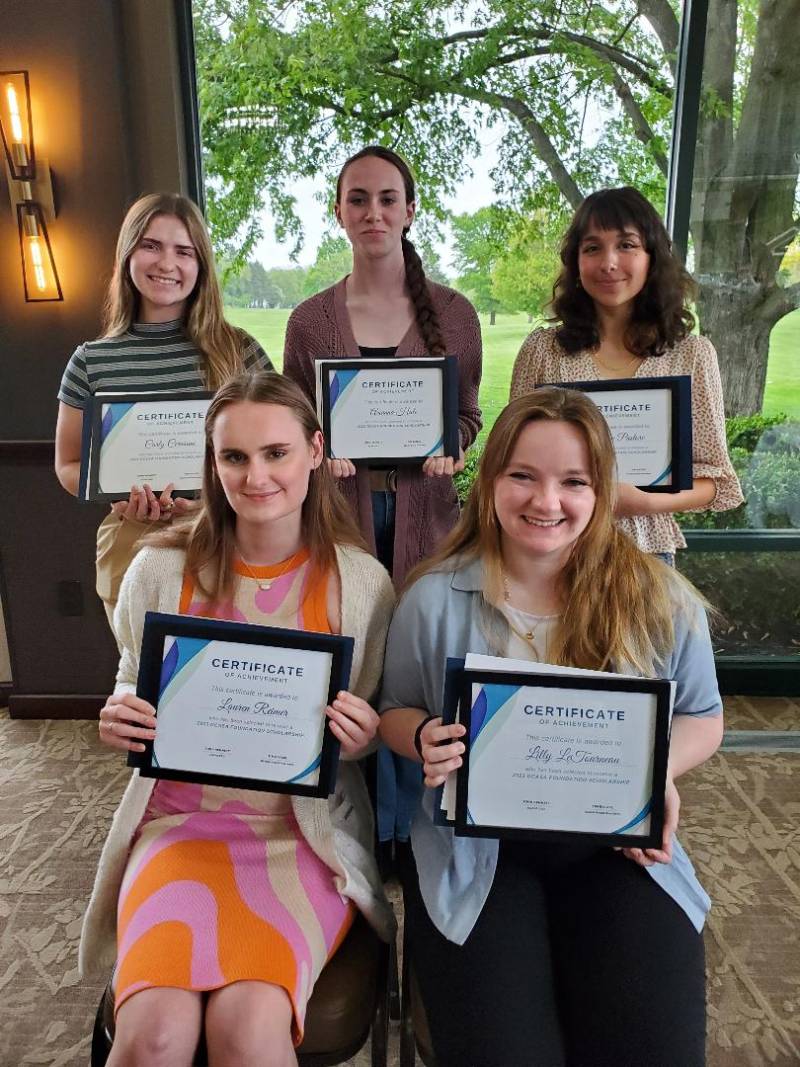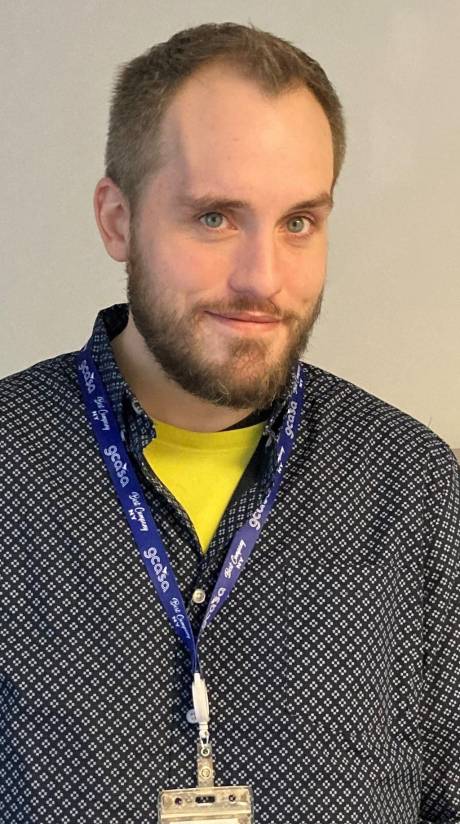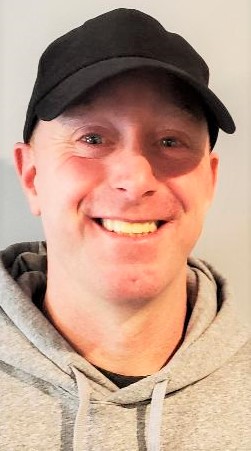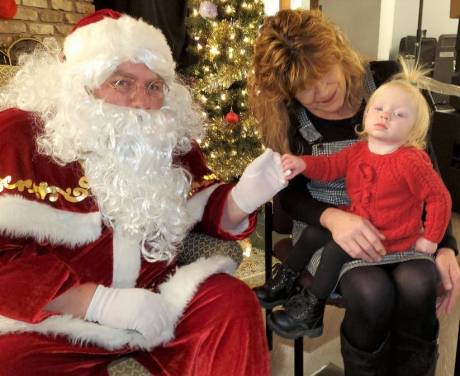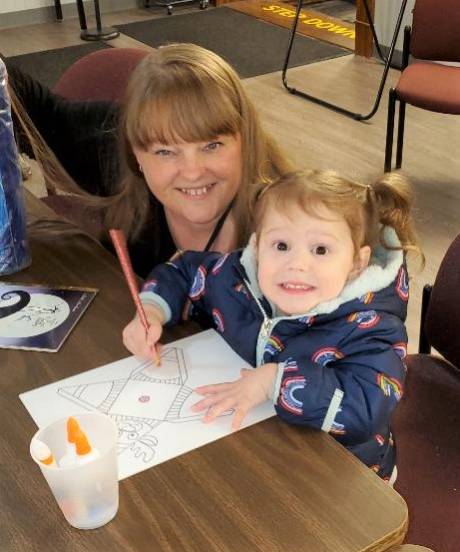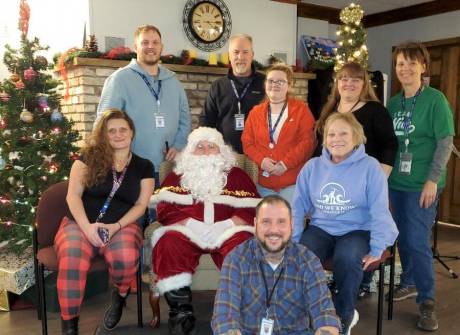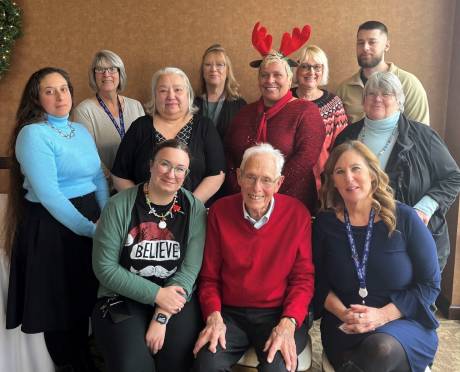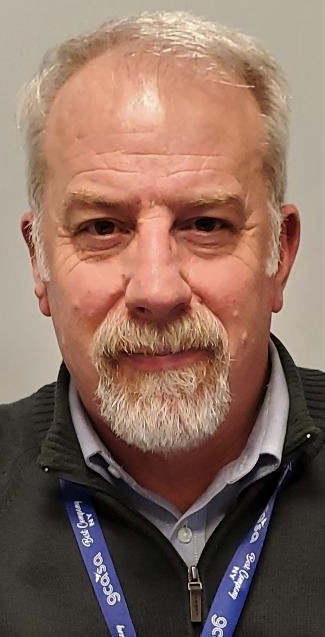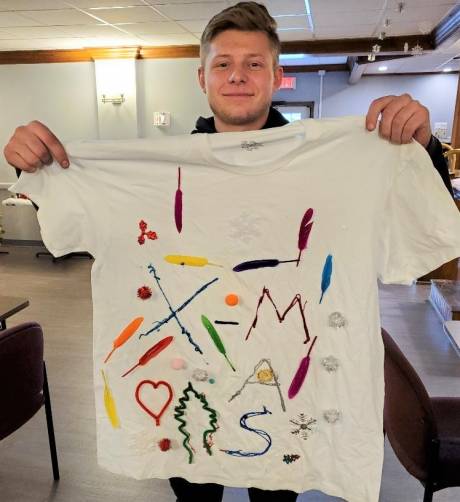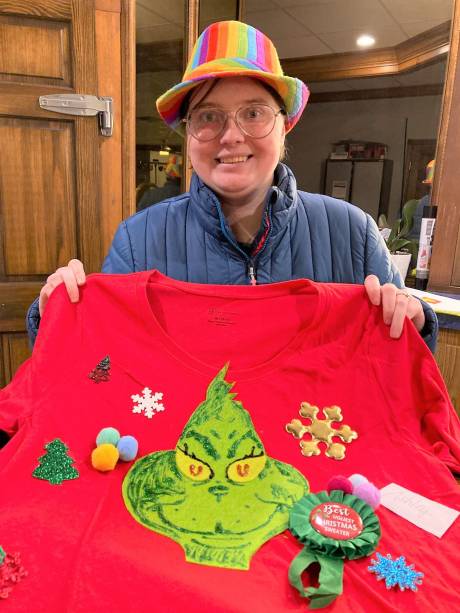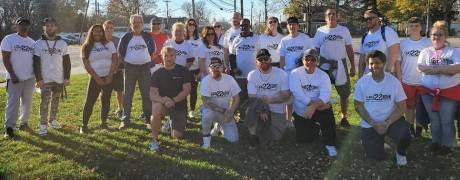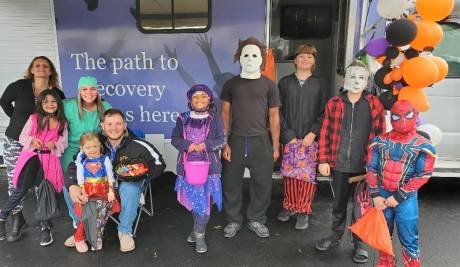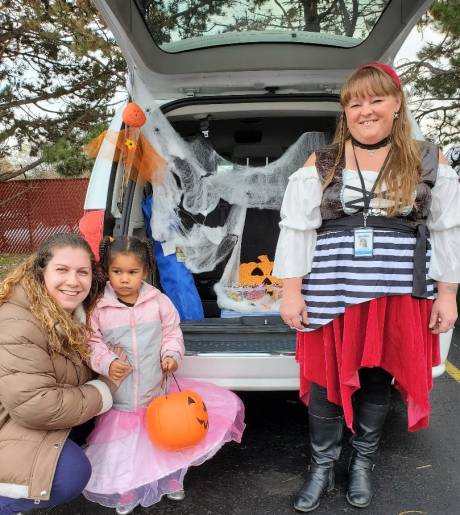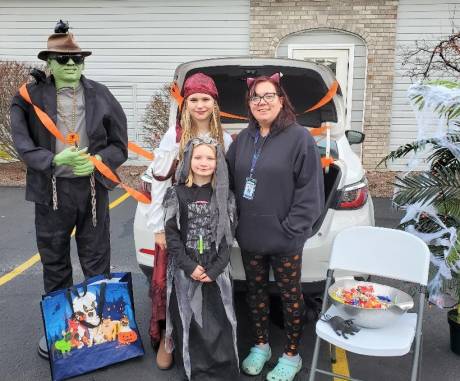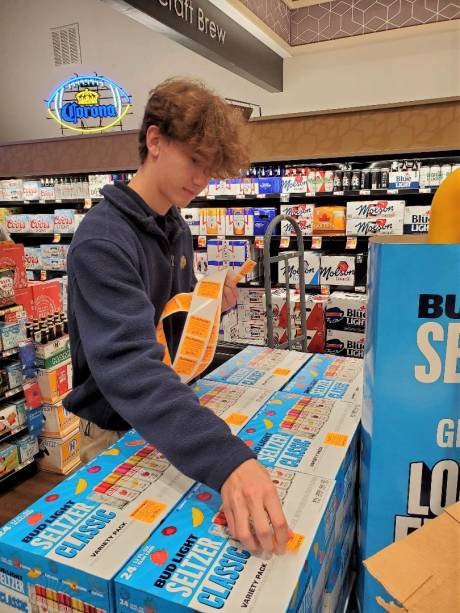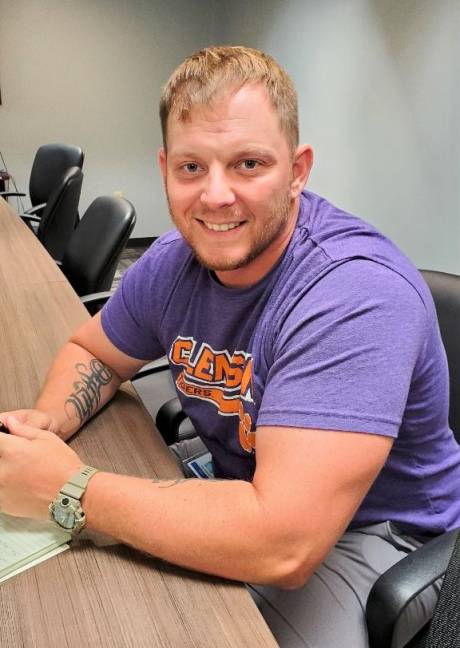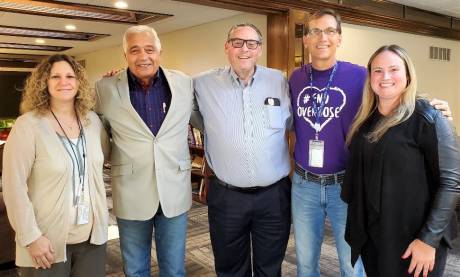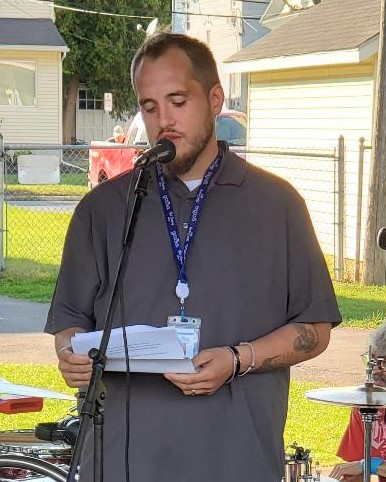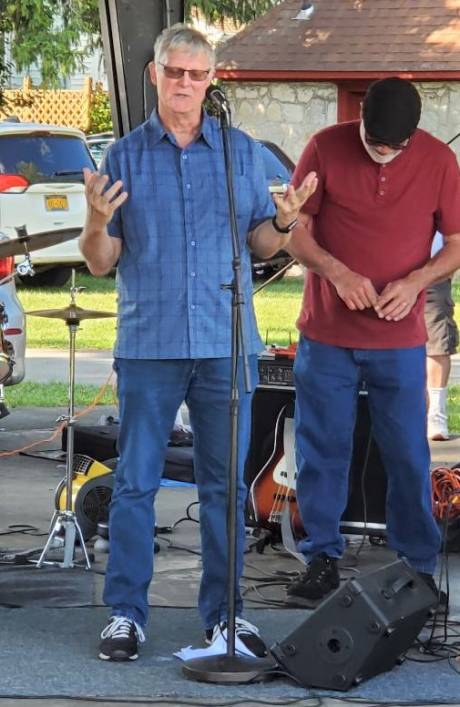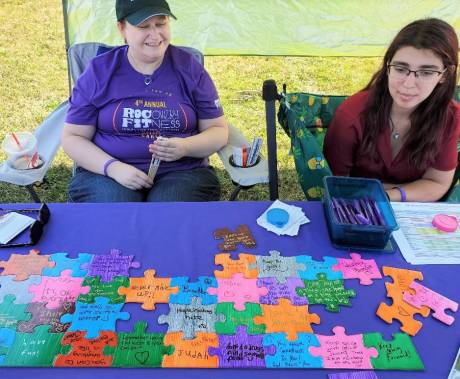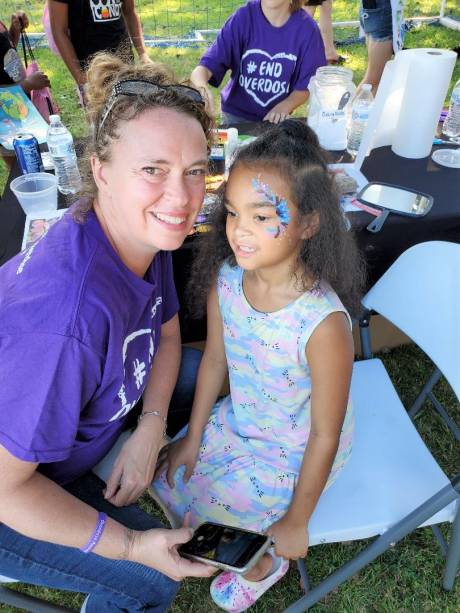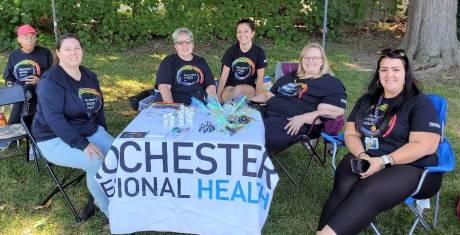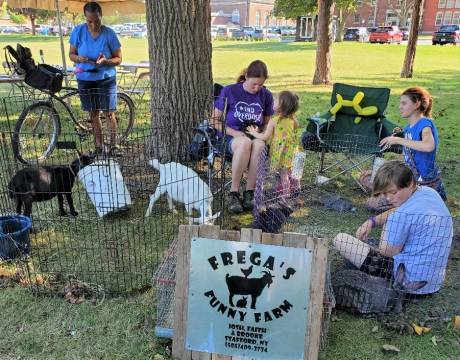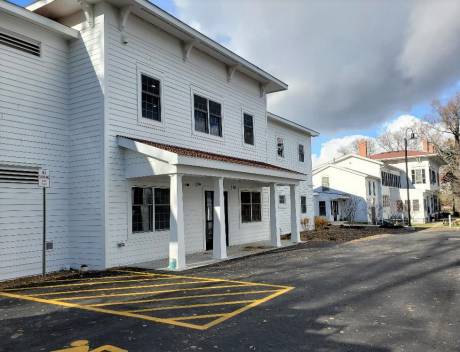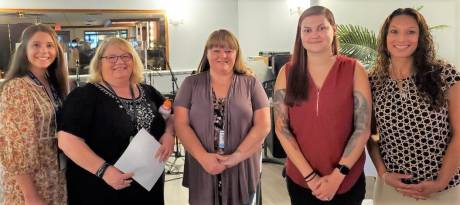College Prevention Initiative grant connects GCASA educators with GCC students, staff
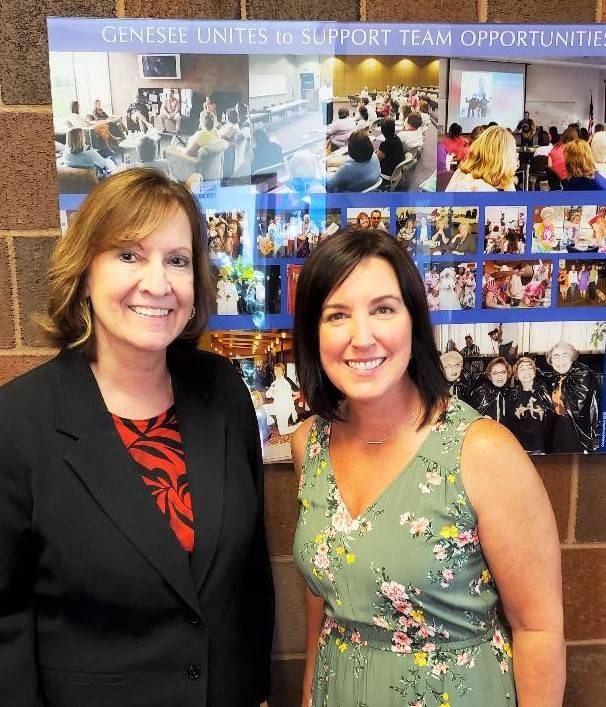
With a renewed emphasis on health and wellness, the administration at Genesee Community College is confident that a two-year grant to provide alcohol and drug prevention services through Genesee/Orleans Council on Alcoholism and Substance Abuse will make a positive difference in students’ lives.
“In recent months, especially since COVID, we’ve put a lot of energy into opening a new wellness office,” GCC Dean of Students Patty Chaya said. “And the health and safety of our students has always been a main priority. This collaboration with GCASA is going to be really great, and it’s coming at a perfect time to build our wellness program.”
Chaya recently learned that GCASA received the grant – about $98,000 annually for two years – from the New York State Office of Addiction Services and Supports. It will enable GCASA to hire one full-time and one half-time prevention educator to work at GCC.
OASAS has awarded several of these College Prevention Initiative grants to State University of New York or City University of New York community colleges, utilizing federal funding relating to the COVID-19 pandemic, the American Rescue Plan Act and the Coronavirus Response and Relief Supplemental Appropriations Act.
The purpose is to implement evidence-based practices and strategies, including individual and family-focused programs and/or community-level environmental change strategies to prevent or reduce substance misuse.
Shannon Ford, director of Prevention at GCASA, wrote the Request for Funding proposal, which then was submitted to OASAS for approval. She said her agency and GCC have been seeking a way to collaborate and provide prevention services for the past several years.
“We’re pleased to be able to provide services at the college and are in the process of accepting resumes for the educator positions,” Ford said. “Our plan is to use the BASICS (Brief Alcohol Screening and Intervention for College Students) and CASICS (Brief Cannabis Screening and Intervention for College Students) evidence-based programs, both of which have produced successful outcomes.”
The two prevention educators will work out of an office in the Dean of Students area on the second floor of the campus’ main building, Chaya said, adding that they will work closely with the college’s wellness specialist, Meghan Bernard.
“Actually, we have a number of offices that will be working together with these new hires,” she said. “One is our College Village residence halls -- our population down there.
“I find that I meet with a lot of those students in my office for infractions. And having them meet with one of these GCASA counselors as a sanction may be really helpful, even though they don't think so all the time. It may help them get back on their feet.”
Chaya acknowledged that there could be underlying factors that lead to students’ use of drugs and alcohol, and that’s where the wellness piece comes in.
“Some of the things that we are looking to work on is peer pressure, lack of connection the students have, disabilities, food insecurity, mental health concerns, poverty or lack of financial resources, lack of resources due to their rural location and a family history of substance abuse,” she said. “Maybe they're struggling with parents getting divorced or a breakup of a relationship. And they really could use some counseling.
“So, in addition, we'll provide them counseling and we'll also provide them some sort of assessments for their substance use and hopefully get them back on their feet again. I mean, this is not just a problem with GCC; it's very widely spread across the United States.”
Substance misuse can have lasting consequences for college students, including poor academic performance, assaults, injury and increased risk of developing substance use disorder.
According to the National Survey on Drug Use and Health in 2019, almost 53 percent of full-time college students ages 18 to 22 drank alcohol in the past month and about 33 percent engaged in binge drinking during that same time frame.
“Family history and other risk factors, such as peer approval and perception of harm, can lead to problems with drugs and alcohol,” Ford said. “Having this grant gives us a unique opportunity to reach young adults with specific, age- and culturally-appropriate prevention approaches.”
Chaya emphasized that GCC Campus Safety will play a role in the program.
“My hope is that we can provide some training for campus safety personnel as well as other people on campus, such as the wellness office and my office in the Dean of Students and the Human Services program -- and just provide training for the staff so we can sustain the benefits of the grant. By doing this, when it ends in two years, we can keep it going,” she said.
She said it’s all about giving students “a second chance” to reach their potential.
“Students want to meet their goals, but sometimes peer pressure or their use of some of these substances may affect their attendance at class,” she observed. “They may actually go to class high and they don't remember what was said in class. And they have a greater likelihood of probably getting in trouble around here. We don't want to see that. We have a very safe campus, and we want that to continue.”
The outreach will include GCC students receiving services through the college’s Educational Opportunity Program and the Adult Education Opportunity Center, Chaya noted.
“We also have – which sometimes people forget – online learning. And just because somebody is an online learner, as long as they're GCC students, they can use our services,” she added. “They may also need the assistance of counseling or alcohol and drug counseling. Because after COVID, these are people that sometimes were home and smoking weed or drinking, and we need to figure out how they can get back to living a great life and doing well with their academics.”
Chaya said the BASICS and CASICS programs are vital to identifying the risk factors and providing avenues to deal with the issues that are hurting their academic and social progress.
“Sometimes, when they’re using, there’s a lack of motivation that leads to low grades, and many times they don’t believe that their excessive use of substances can lead to a substance use disorder,” she said.
A concentrated effort will be placed upon students living at the College Village on-campus residence halls.
“Students smoke marijuana in their rooms in the residence halls and don’t want the fire alarm detector to go off, so, they cover their fire alarm fire detector, which is a big no, no,” Chaya said. “And some are suspended because of this and lose their housing privileges because it’s putting everyone at risk.”
For more information about the grant or to apply for the prevention educator positions, contact Ford at sford@gcasa.org.
Disclosure: Mike Pettinella is the publicist for GCASA.

